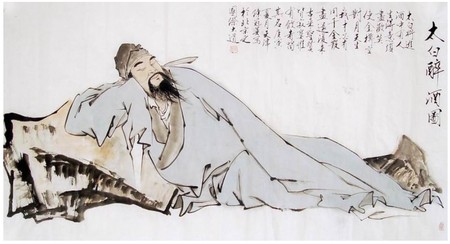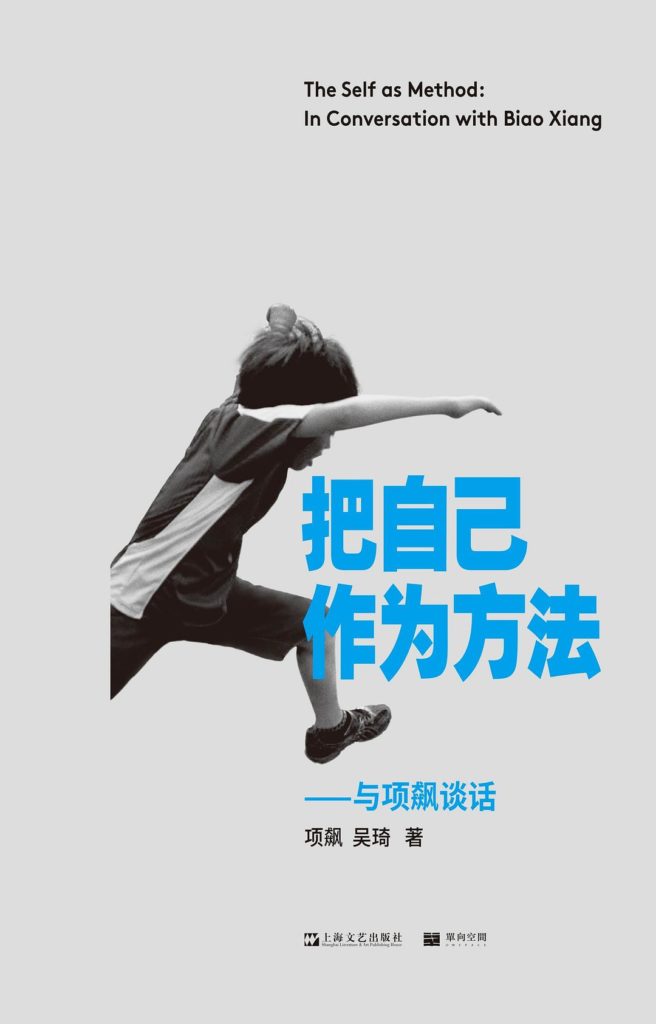China prepares Tibetans for tightly disciplined bullshit jobs in distant cities.
Blog one of four on realities of the labour market for displaced Tibetans
If Tibetans are catapulted out of their pastures, into urban apartments and migration to big cities, how will they fare? What awaits them in the city job market? If you want the latest statistics on China’s labour transfer program in Tibet, go to blog four below. If you want the wider context, read on.
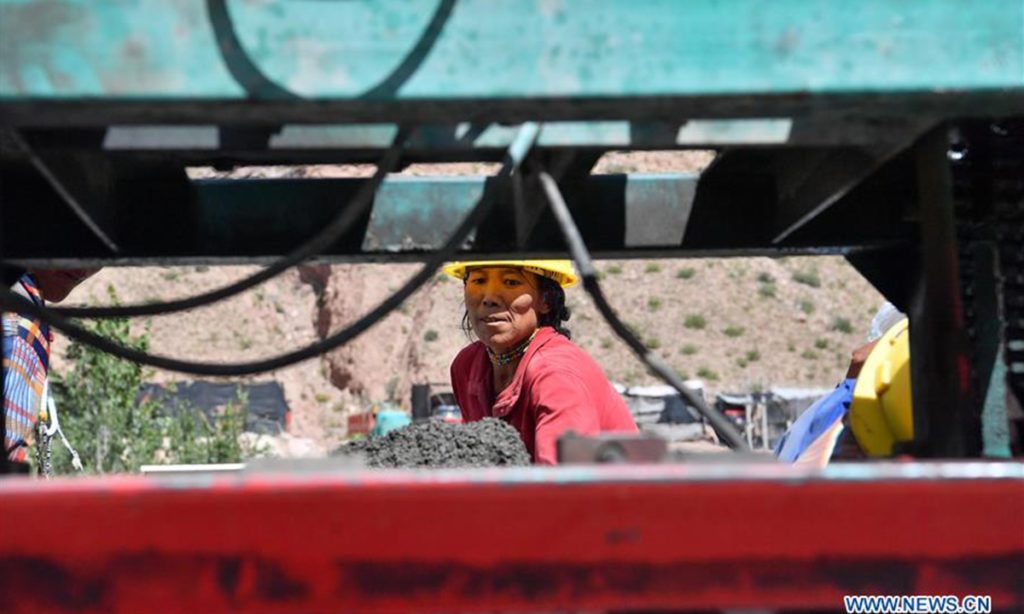
OVERPROMISING
As China seeks to mobilise and accelerate Tibetan lives, how can Tibetans assess their prospects? The smart phones almost all Tibetans have tell them opportunity is knocking, a new era of wealth accumulation beckons, as long as you are adventurous, and willing to move to where the entrepreneurial openings are. If you move to the city, work hard, leave family behind, take risks, you too can join the rich list.
Before you plunge into the sea of business, you must first learn to swim. This means fluency in Chinese, and training in vocational skills, which is increasingly available from local governments.
Before you succeed, you must be willing to eat bitterness, live frugally, learn to save, and resist clan demands to share, learn to network and cultivate the trust of those who can help you, and then you will succeed. To use a Maoist slogan now making a comeback: dare the struggle, dare to win.

You may need to reinvent yourself more than once, before you find that niche that is your sweet spot, where you can establish your brand. You may have to migrate more than once, to bigger and bigger cities where distance from kin is a blessing, old concepts of karma and consequences fade, you become your own master.
Can you pass as Han? All the better. Are you a networker? Can you cultivate a powerful patron? Do you know how and when to give gifts, and prove your trustworthiness?
When you succeed, everything is possible. People will want to know you, including officials. You can build a villa, travel, go anywhere, become a benefactor to your hometown.[1] Everything is consumable. China is a world unto itself, with not only the high-pressure cities but the vast idyllic primordial landscapes of Tibet as the antidote to urban stress.
The success that awaits you makes the years of discipline worthwhile. All those years, starting early in childhood, urged on by your teachers and parents, of obsessive focus on memorising the right answers, will eventually pay off. There are winners, and they get to be wealthy and super-wealthy, magnetising more and more wealth and emulation.
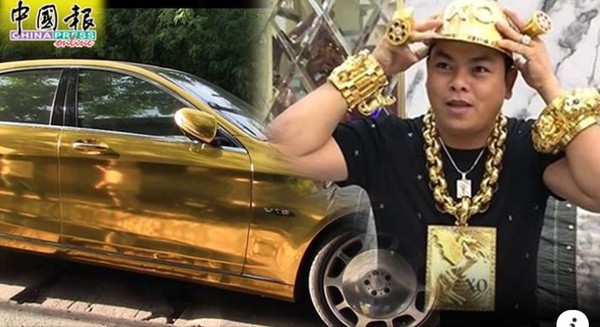
”The second generation of rural entrepreneurs, who set up businesses in the first two decades of the 21st century, have begun to identify as a social group that is clearly distinct from the rest of the local population. Intentional depersonalisation of social relationships…. this growing social differentiation parallels shifts in the geographical basis of identity, as rural entrepreneurs start to identify more with a nationally defined social community.”
Don’t worry about burnout, only the weak burn out, and they deserve contempt. They lie flat, and say that’s OK.
NEW BEGINNINGS IN CHINA
For decades now, Chinese have been told these times are the best in China’s history, the greatest opportunity ever to get gloriously rich. Hence the endless work, plunging into the sea of enterprise, eating bitterness. Now a new generation is saying: enough, we are indeed wealthy as our hard-working ancestors never were. So what is life for? Can we relax, and look around?
The more the party-state and corporate bosses push their prosperity gospel, the more a double movement swings back against it. A new Han generation sees the concentration of wealth, the worship of billionaires, the endless pressure to consume, and decide on a simpler and more authentic life, even if they are held in contempt by those committed to the rat-race. Even if, for men, a lack of capital means a lack of opportunity to marry, still many are drawn to drop out, do their own thing, take life as it comes, opt out of the relentless march to mastery as an individual as well as national mission.

If others judge them as failures, losers, let them. In fact don’t wait to be labelled a deadbeat, announce it yourself: I’m lying flat, so be it. Embrace the stereotyping, make it your own.
Go write poetry, or wander the land, or make art, be true to yourself, find ways of expressing yourself, find the Way, so much better than a meaningless job in a corporation that works you 996 yet has no loyalty to you at all should you drop from exhaustion.
Not only are you expected to do nothing other than work, eat and sleep, but you also need to cultivate a network if you expect to get ahead, and that too is exhausting. It’s not just a question of finding the right patron, offering the right gifts, the rituals of establishing emotional bonds with your patron, establishing trustworthiness, is extremely time consuming as well as expensive.
On popular media such as weibo, this is a major reason for opting out: “For promotion, I will not engage in interpersonal relations, nor will I flatter anyone to get opportunities, nor will I treat guests or give gifts to achieve my goals, so I simply gave up and no longer think that promotion or becoming an official is a necessity in my life. Especially the fate of those corrupt officials is admirable. I can only do my job well. Although there is no glory and wealth, but live cleanly, live real, not vanity, not hypocrisy.”
Better to lie flat, 躺平 tang ping, let the world know you are done competing. If others accuse you of passivity, fatalism, even of being Buddhist, so be it. Lying flat is a fairly recent buzzword, but its meaning is not so new. This stance of passive acceptance of whatever arises used to be called Buddhist “佛系” fu xi, with similar connotations of fatalistic equanimity as the alternative to endless competition and marketisation of all aspects of life.
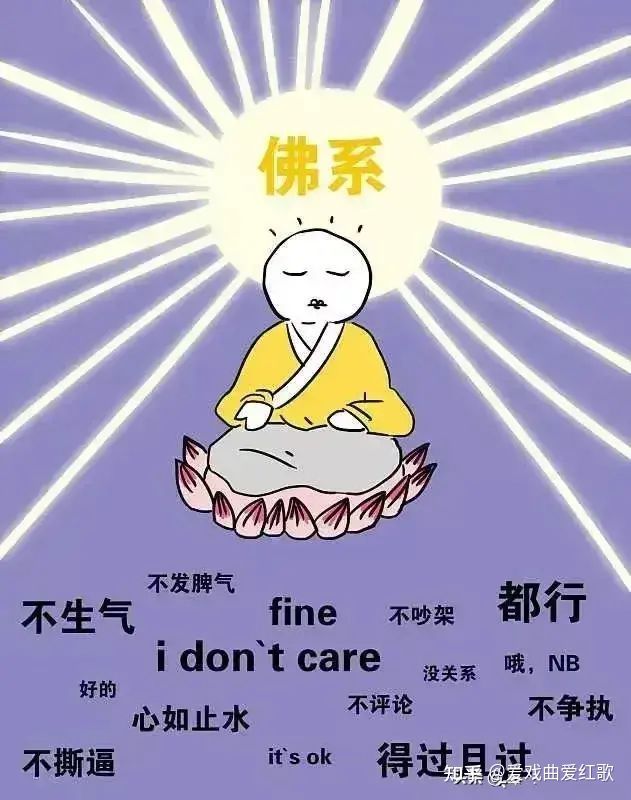
As long as slacking is just a choice of a smallish number of well-educated youths, the party-state is not worried, indulgently regarding it as a fad, a gap year break before getting back to the grind. But if it takes off, and sheds its self-critical negative evaluation, official China may not be so tolerant.
This is not at all the onward and upward mission of the party-state, which demands everyone mobilise and discipline the self to succeed. Nor is it the mission of the corporations that promote consumption as the purpose of life. Most definitely it is not the mission of the education system, that relentlessly teaches exam success as the sole gateway to life. So it is also not the mission of your parents, who only want you to be a winner, and themselves made many sacrifices so you would cram rote fact learning round the clock, in order to succeed.
For some who do lie flat, art beckons; for some the nomadland of wandering a vast and varied China with hinterlands that belong to a different world. Having paused, there is a sense of discovering an authentic self, which means taking life as it comes, finding ways to express an individuality that is more than advertising an identity made by consumer decisions. To lie flat allows in the light, fresh perspectives, self-discovery, self as method. That’s better than endlessly rolling round and round going nowhere. A manifesto of taking life lying flat is neither negative, nor defeatist.
As this movement picks up, is glamourised by elite media such as Sixth Tone and The Paper and Bilibili, the party-state will sternly remind all they must play their part in China’s great rejuvenation. Official media celebrating the 2021 centenary of China’s communist party demand endless, arduous struggle for mastery: “We will certainly make greater contributions to the progress of human civilization and the development of world socialism, and make this just and promising cause shine more brilliantly in generate!”
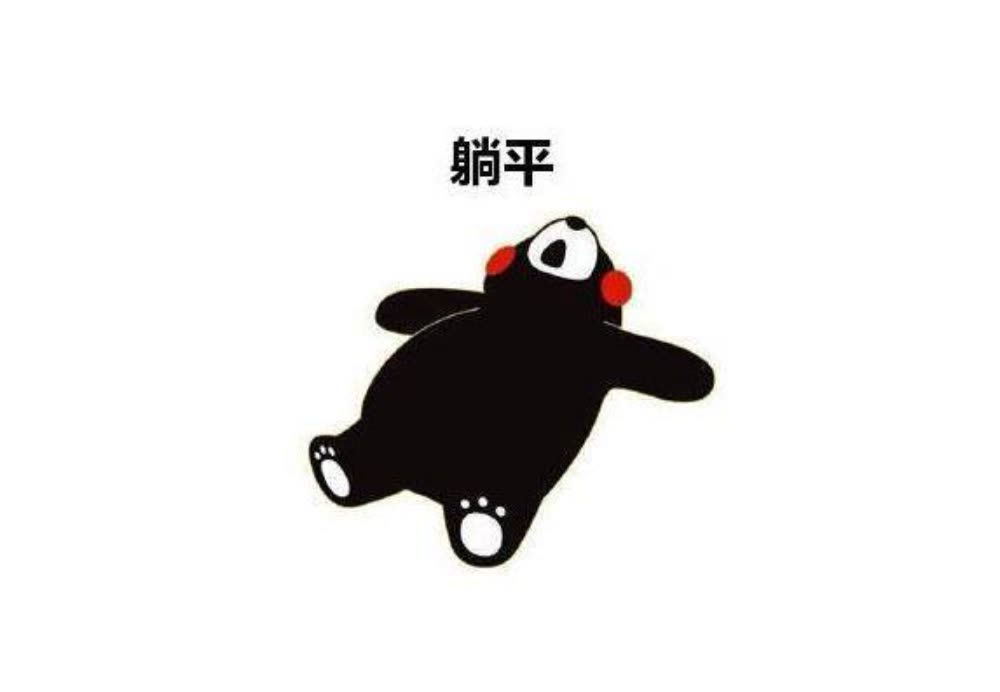
CAPTURING AND MONETISING THE LIE FLAT MOVEMENT
The video streaming platform Bilibili, favourite of the young, shamelessly badged a package of short videos on women artists and male adventurers, as a series all about lying flat to do your thing. Each five-minute episode followed the same format: a 40 second teaser to hook your interest, an animated title sequence of flopping onto a sofa in trackpants, then the doco.
“’Riding the massive wave of videolization, we aim to further grow our mindshare among the Gen Z+ demographic as the premium destination for video-based content,” said Bilibili chairman and CEO Rui Chen in a statement.” Bilibili makes much of its profit from selling user data to advertisers, and much as an e-commerce platform. Bilibili has 223 million users each month, including 60 million who use it every day. The hunger for new content, for new “this could be your life” segments is inexorable. Lying flat is fast becoming a new lifestyle choice packaged for consumption, to be copied, a new cool destination with lots of accoutrements you can buy.
Authenticity can be marketized. Lying flat can be appropriated, remade as the next cool lifestyle fad.
If you live in a Western country, this might sound familiar. Capitalist creative destruction is always on the lookout for the next big thing, the next gimmick or craze, viral hit or meme, to co-opt for the greater advantage of the brand. Worship of disruptive tech billionaires? Mining website users for data? Surveillance by smart phone apps? Monetising eyeballs? Influencers galore? If all this sounds all too familiar, the most obvious conclusion would be that, despite China’s quarrels with America, China has emulated any and every capitalist move you can think of, even including black rap culture and hyper saturated sneakers. And you’d be right, only China has gone further, much further than the US. This is especially evident in the penetration of fintech and e-commerce and delivery of what you buy online. Now it’s the US that struggles to keep up.
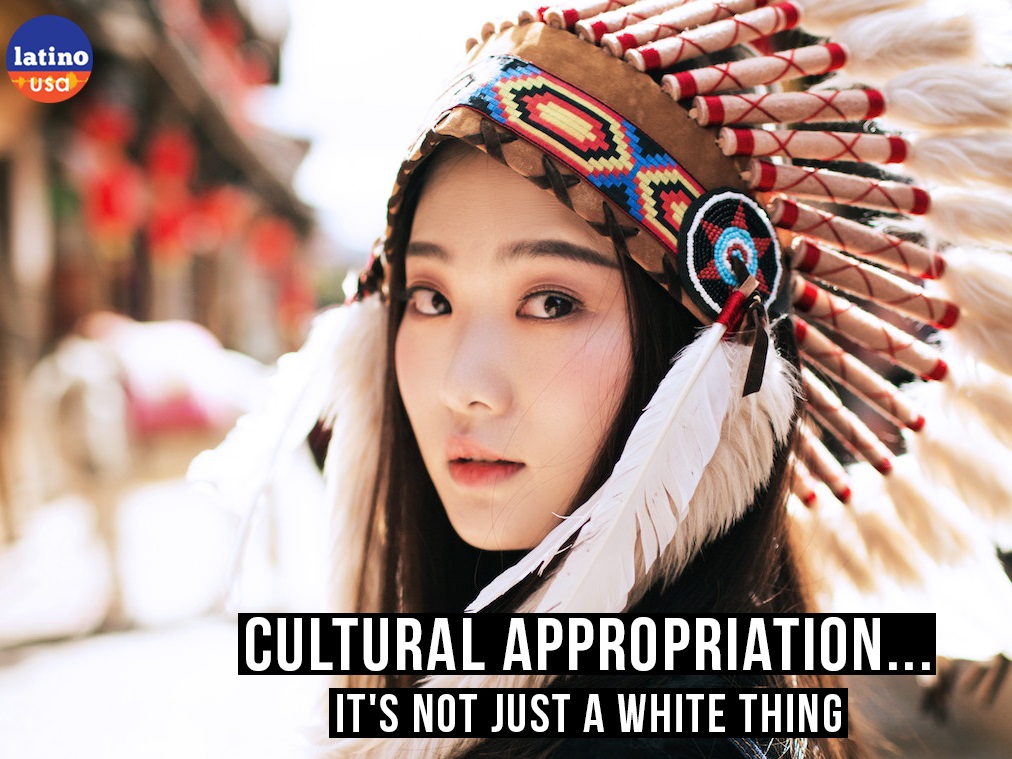
The result is ferocious competition, even where no competition is needed. Historian Peter Perdue:
“Chinese people struggle to find moral guidance in a world of rapacious capitalism, unconstrained by rule of law or moral norms. Chinese endorsed cowboy capitalism of the most corrupt, environmentally destructive kind. Like all of us, they struggle to restrain capitalist greed with moral or legal norms; many of them, amazingly enough, have turned to Christianity for answers, but others search for guidance in Buddhism, Daoism, popular cults, and even Confucius. Where is the unified moral community of the past, if it ever existed, to be found?”
So it’s hardly surprising more and more young adults opt out, lie flat, and with mock self-deprecation call themselves deadbeat failures, much as Tibetans call themselves lazy. It means accepting you will always have a mediocre social credit rating, in a system elaborately designed to rate and reward those who take the corporate and party-state agendas as their own. It means accepting you will be officially classified as untrustworthy.
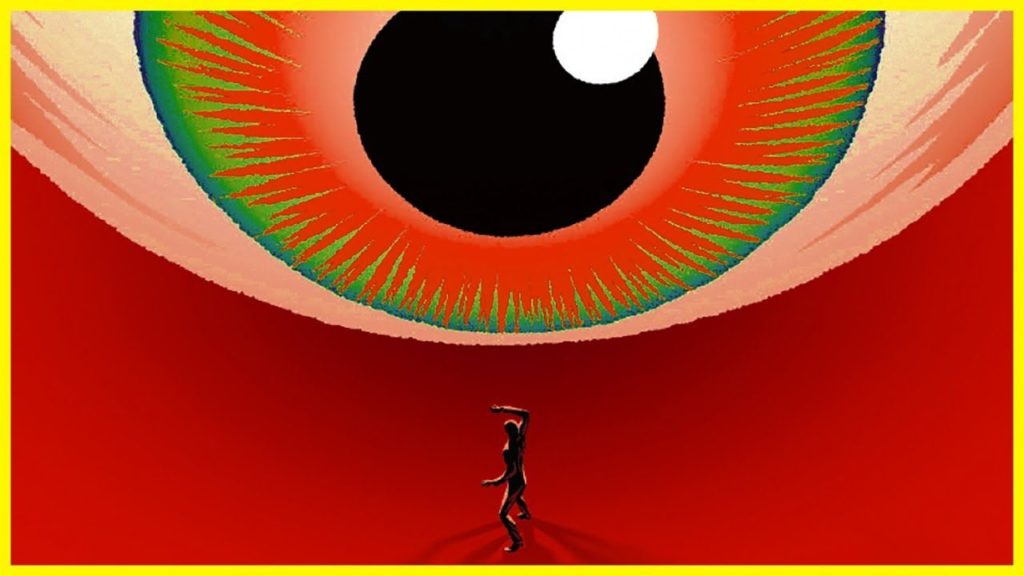
CHINA’S PROSPERITY GOSPEL
The trope of lying flat didn’t start out as a positive alternative to the chicken blood force-fed childhood so many endure, in obedience to ambitious parents. It began as an expression of exhaustion and despair, at the cram schooling of childhood and the 996 work culture ahead. It began with teenagers struggling to make sense of the endless success-focussed discipline imposed by tiger mothers, who invariably said: “this is for your own good.” When it is not only the party-state but also your mom and dad instructing you to be always obedient, how to process that? There’s no escape.

The upside of opting out is living in the present, not in endlessly deferred gratifications. Increasingly, popular media in China acknowledge the upsides of becoming a slacker.
A further upside is declining to have your mind endlessly mined for data, not getting hooked by influencers, not becoming the product online platforms sell to advertisers.
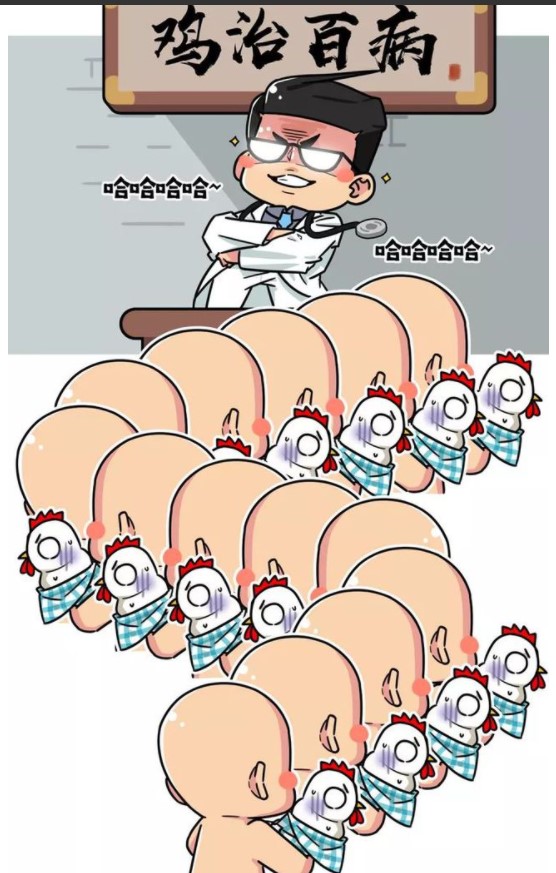
The turn from despair to celebration, from losing the race to winning freedom, is the birth of a counterculture. Perhaps the surest sign of the emergence of a counterculture is that is has a culture hero, whose life story as well as his analysis of this moment add up to a positive role model.

Xiang Biao, a sociologist who has specialised in the effects of migration within and from contemporary China to the world, is the exemplary poster child for the new lie flat ethos. Xiang Biao’s cv reads like the sort of success story chicken blood mothers urge their children to emulate. He is a professor in Oxford, having grown up in regional China, graduating from Peking University, and he has a big following.
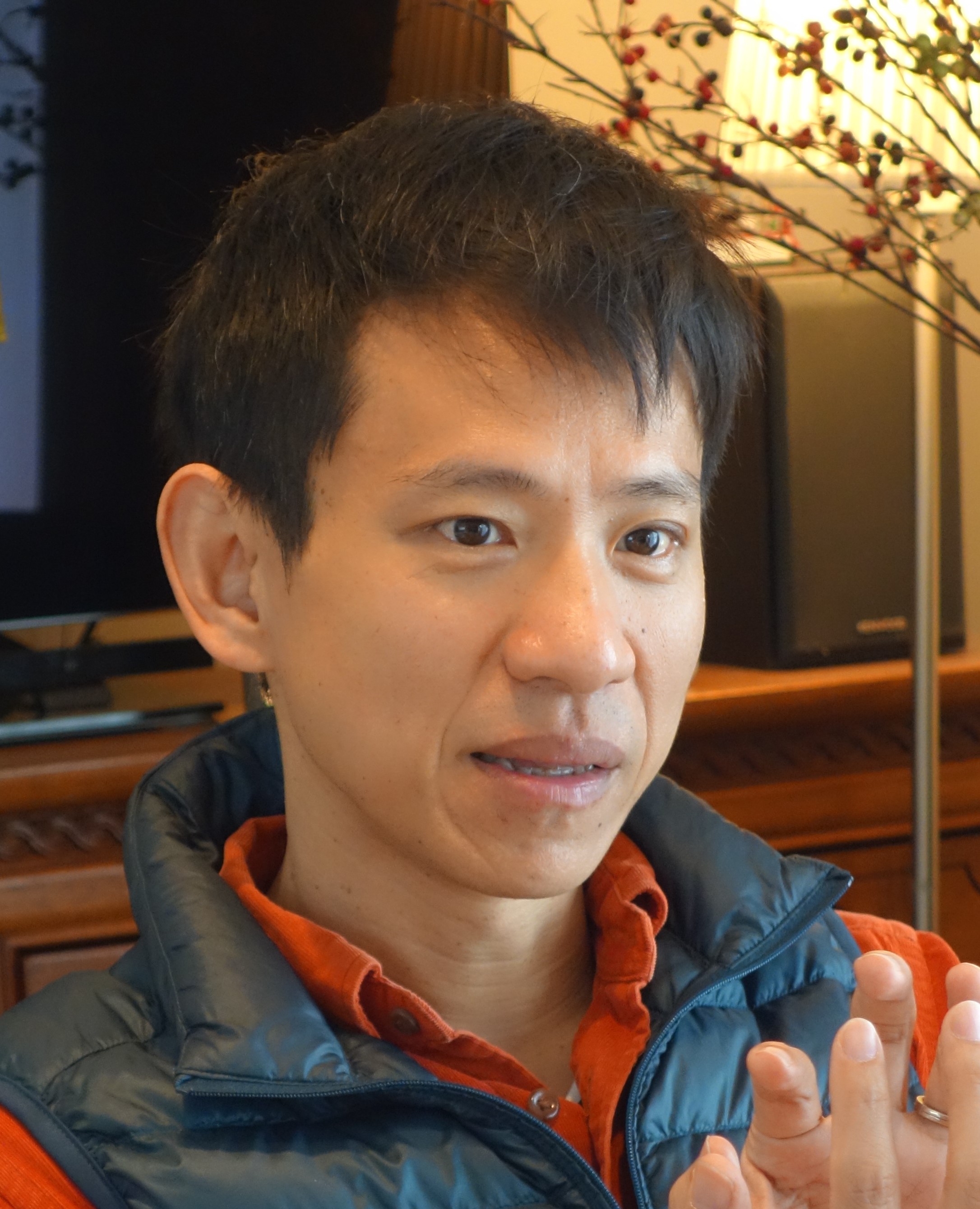
Yet he in no way positions himself as leader of a movement; instead championing the individual journey of self-discovery every inside roller traverses. Less than a generation older than his many Han slacker followers, he defers to their individual quest for authenticity as a path that needs no validation from him. He is supportive, encouraging and a source of critiquing the hypercompetitive anxieties of today’s China, that draws on his familiarity with both Chinese and Western culture theory.
Xiang Biao (or in the Anglo system Biao Xiang, putting the family name last) is the classic insider outsider, a genial critic of the accelerating speed of new era China, able to present his analyses within China and worldwide. As professor of social anthropology at Oxford University, and director of the equally prestigious Max Planck Institute for Social Anthropology in Germany, he is at the apex of what every Chinese tiger mother dreams her son will accomplish, yet he has no Wikipedia page.
A MODEL SLACKER?
A recent book length interview with him is a best seller in China, giving him opportunity to do a participant observer ethnography of today’s China and why, despite such success, it spins faster and faster, like a gyroscope that must twirl at top speed, or topple. His metaphor.
Such critiques are not unique in today’s China. Critiquing the excesses of wealth concentration and capitalist exploitation of workers is the hallmark of the highly influential New Left academics who somehow always end up arguing for China’s uniqueness, continuity, stable identity and the need for s strong state that regulates capitalism’s booms and busts. So many of the New Left, many of them much more famous than Xiang Biao in China and worldwide, end up justifying CCP rule as a historic necessity, and proof of the superiority of Chinese characteristics.
Xiang Biao is less included to such grand narratives, more interested in ethnography of the present moment, more attuned to what the flatlining slackers are up to. His youthful looks, acute critiques and academic cred have made him into a meme, a comic book character who illuminates why all those dead-end bullshit jobs exist in China, monopolising the waking hours of the new precariat of urban China, doing exactly the low paid gigs Tibetans are now being urged into.
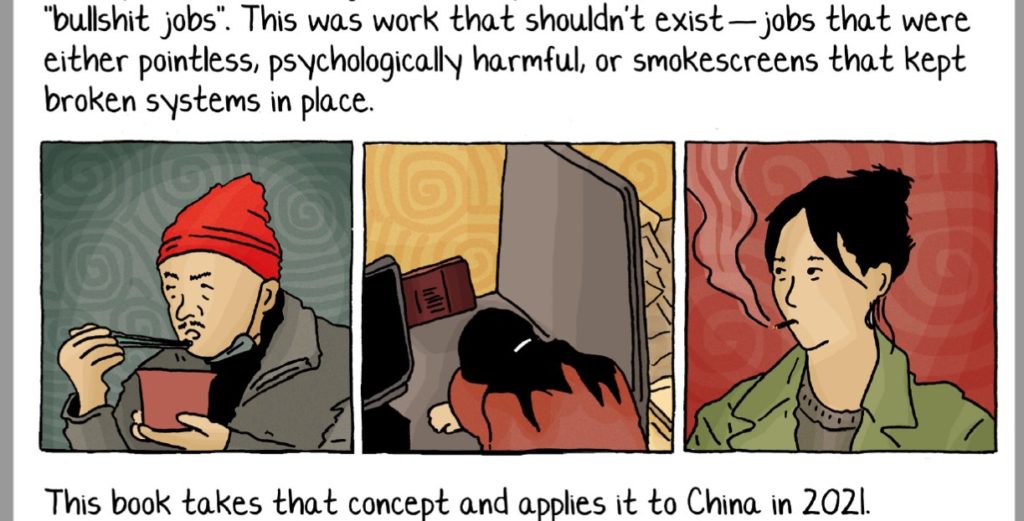
A COUNTER-CULTURE IS BORN
Xiang Biao’s 15 seconds of fame as a comic strip is for a reason: he nails why and how China exploits its young while forever dangling the mirage of success if only you keep working for the man. China has not just entered global culture, it leads it. If we want to see the future of modernity, look at China, the pace setter.
In itself, that is a good reason for Tibetans scattered in global diaspora to notice the prevalence of gig economy jobs in urban life, whatever your city. Exiled Tibetans sans papiers in many cities, awaiting a chance to register as asylum seekers, also must accept underpaid underclass bullshit jobs too, until they get a toehold. Being down and out in Jackson Heights or Paris or Shanghai is being down and out.
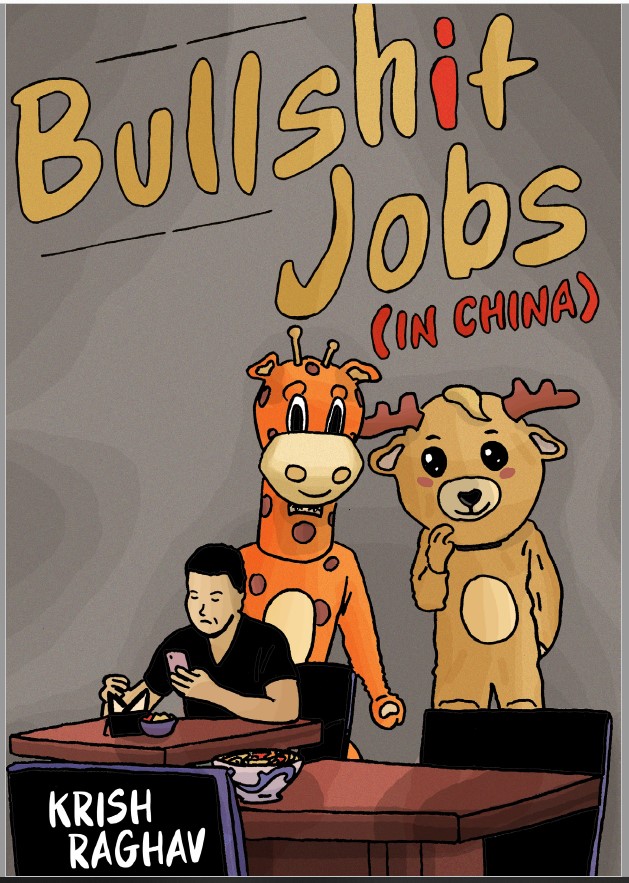
Yet it is this world of glam promise and endlessly repetitive, often dangerous, precariat work that rural Tibetans are being lured into, as well as being coerced into. This has little of the drama of forced labour in Xinjiang, of reconditioned Uighurs transferred from indoctrination incarceration to the factory next door. In Tibet, the process is more patchy, piecemeal and reliant on the seductions of urban life, the illusions of freedom to find your own niche, only to find yourself delivering pizza, dodging heavy traffic.
Tibetans attracted by the promise of urban modernity need to know where this ends up, in entry level precarity. Who can tell them? Who better than the Tibetan underclass in Delhi, Paris, Antwerp, London or New York?
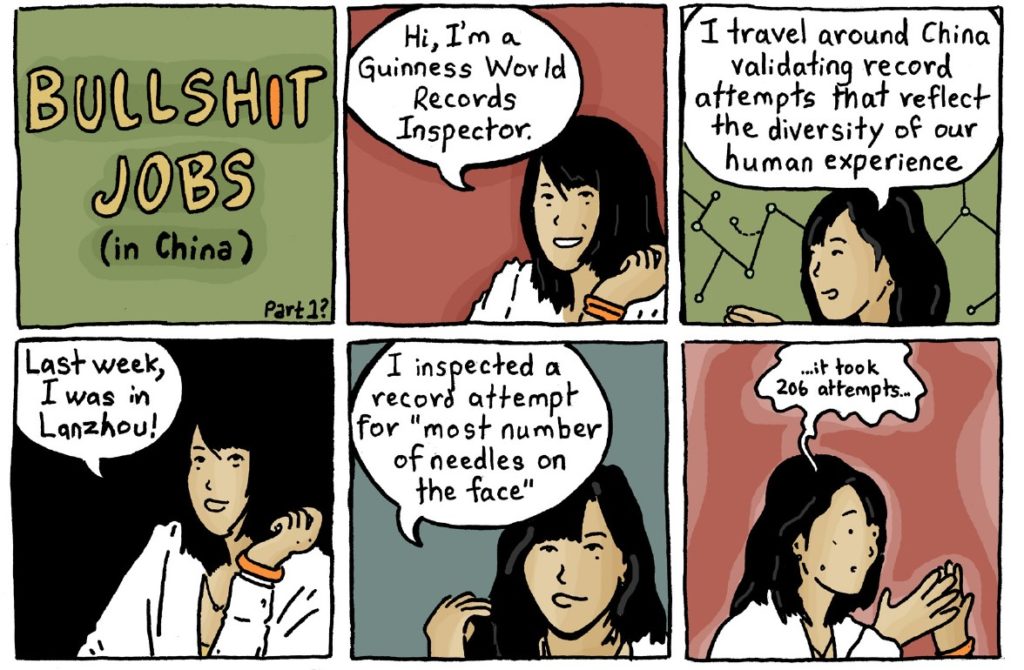
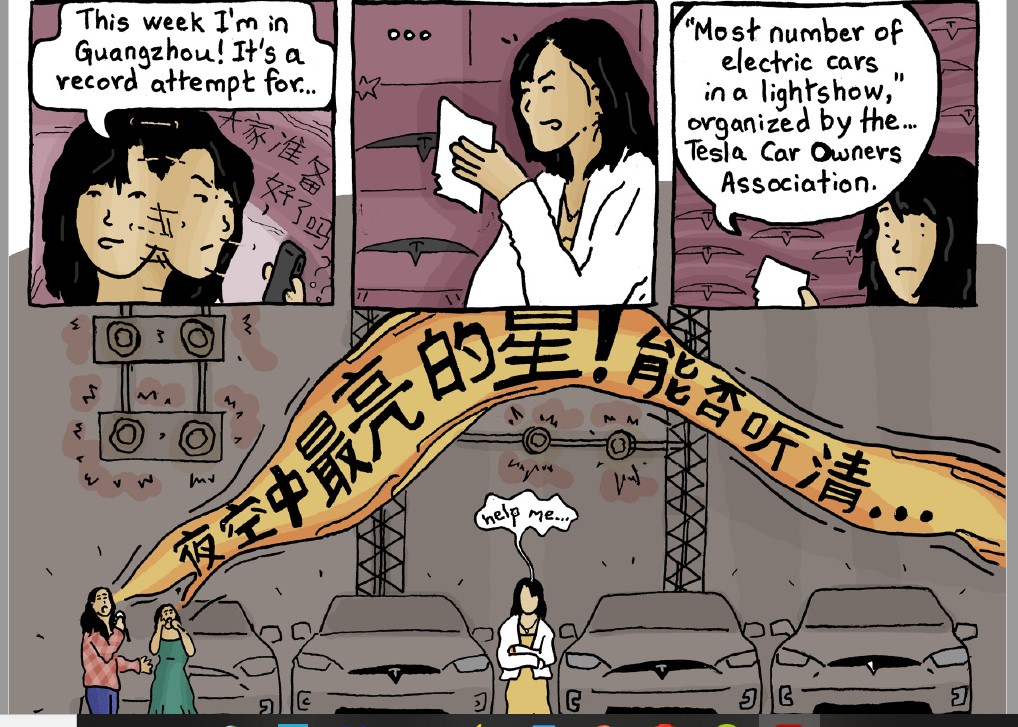
In short, what Xiang Biao does is to reintroduce the Marxist concept of class. Since China calls itself Marxist, this is a deep irony. The last thing the party-state needs is a Marxist critique of how wealth concentration is built on all those service sector gig workers doing their bullshit jobs until they drop from exhaustion.
Yet his critique is in no way confrontational, challenging the party-state. It is reflective and personal, a story arising from his own experience, starting as a student entering university in 1990, a year central leaders saw as imperative to instil discipline by sending all new students off to military bootcamp. There Xiang Biao discovered the deep bonds of teamwork, a good start. As Xiang Biao puts it: “only if you protect one another will you survive, so you have to coordinate your actions and create an emotional desire to live or die together.’
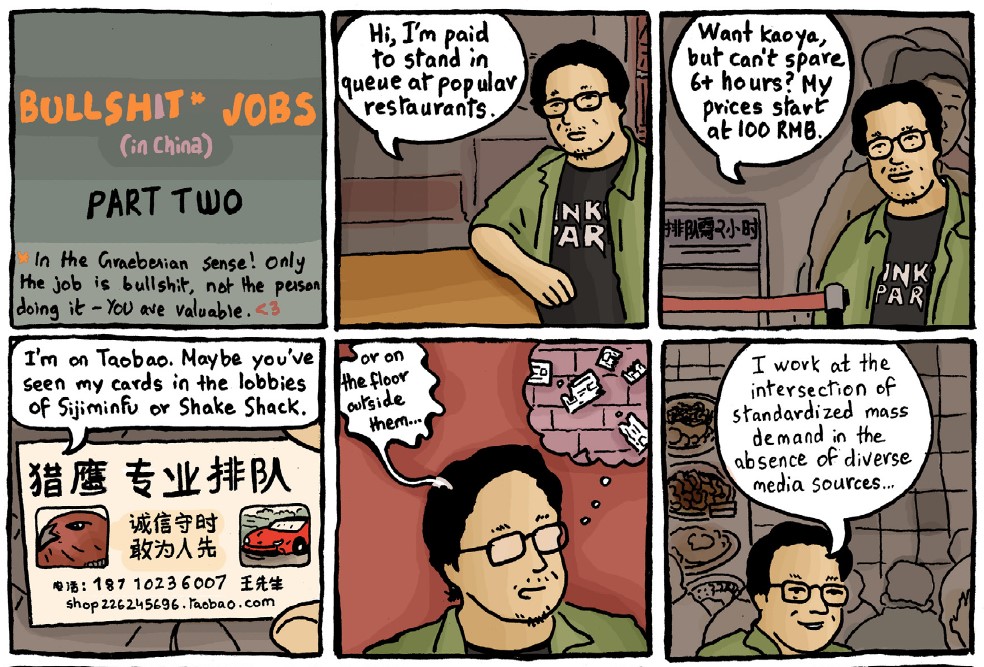
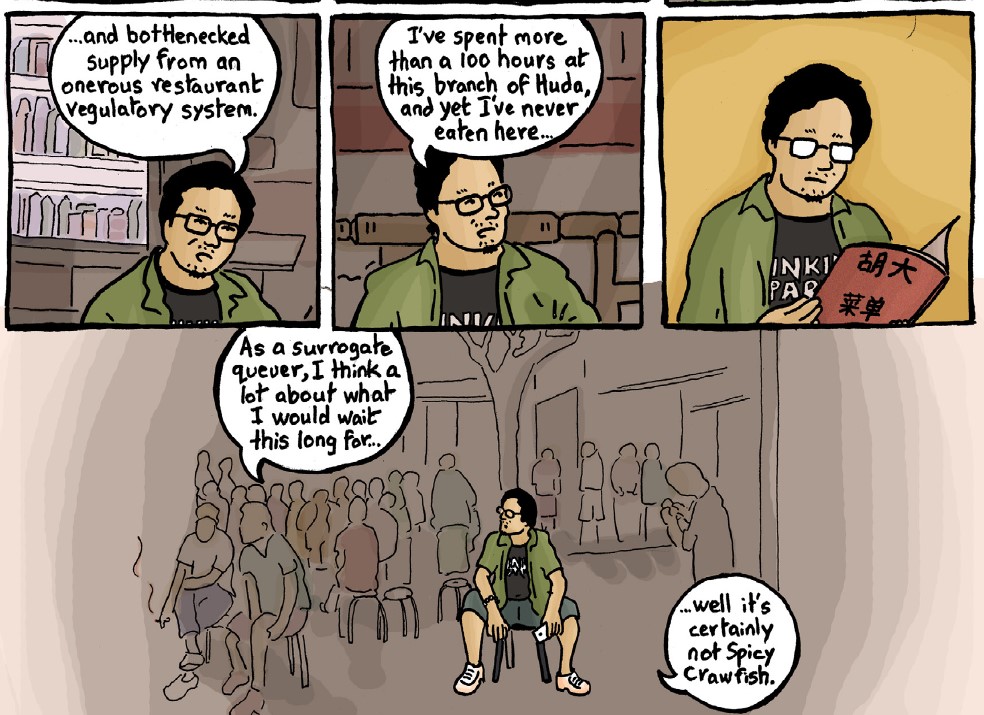
So his hit book of 2020 is tellingly titled Self as Method.[2] Fortunately, much is now available in English translation. Some quotes: “Truly, not letting go is a problem for me, a huge obstacle in my research. If you don’t let up, and stubbornly push your thoughts deeper, then you don’t let your mind wander, which can wind up limiting your creativity.”
As a sociology student at Peking University (Beida) 30 years ago he wrote a polite but pointed critique of “older professors who had been there forever, and had little understanding of society, and my feeling was that they were not interested in what was happening in society.” To his surprise, this was taken seriously. A pattern was set: understand closely what is happening in society, and critique those who fail to notice reality. It sounds so simple: why don’t more do it?
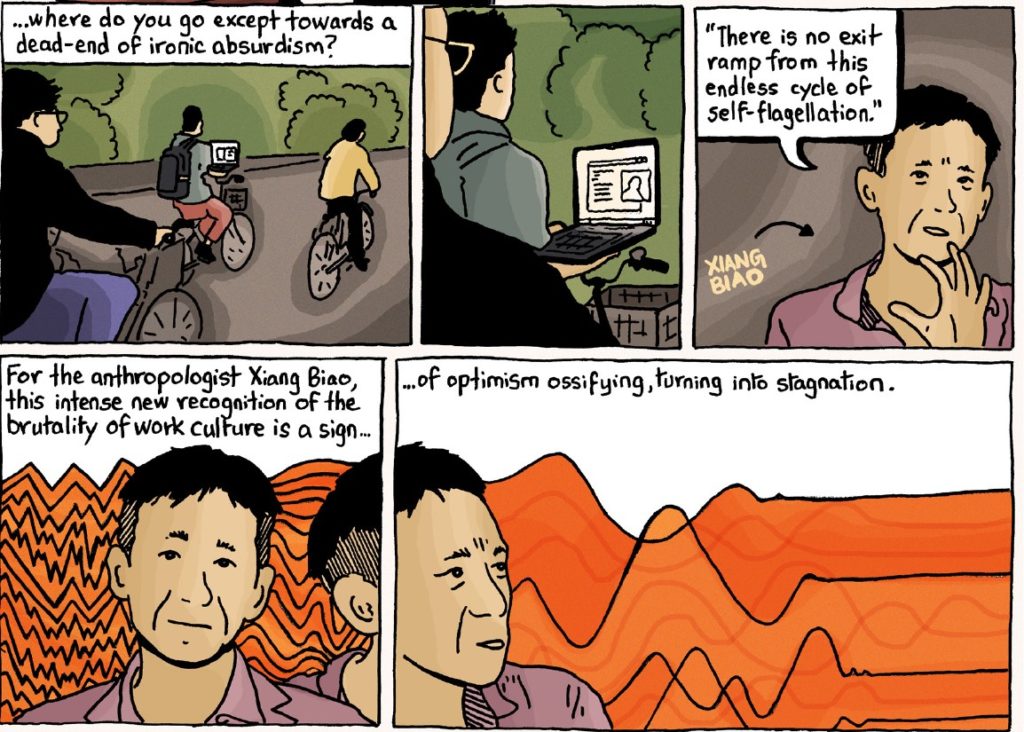
A CULTURE HERO FOR THESE TIMES
Xiang Biao emerged from these formative years with a deep sympathy for “the masses” the party-state claims to represent; yet treat as an abstraction they don’t wish to know about much. He is a good listener. His focus is on the marginal, the migrants, the outsiders. He retains a youthful enthusiasm and a reflective capacity to see underlying patterns, systemic inequalities, and a quiet way of speaking truth to power. In many ways he resembles Anand Giriharidas or Zeynep Tufekci, prophets for these times.
Being from Zhejiang Wenzhou also gave Xiang Biao an early start. Wenzhou is famous for having taken to entrepreneurialism quickly, as soon as Deng Xiaoping, in 1992, said it was OK to get gloriously rich. People from Wenzhou, and Zhejiang province in China’s southeast, migrated to wherever they saw opportunity, including establishing a colony in a Beijing suburb, which is where Xiang Biao spent most of his time as a Beida undergrad, doing fieldwork and skipping class. He saw up close both the promise of capitalist enterprise, and its downsides, resulting in the bullshit jobs so many young Han end up in.
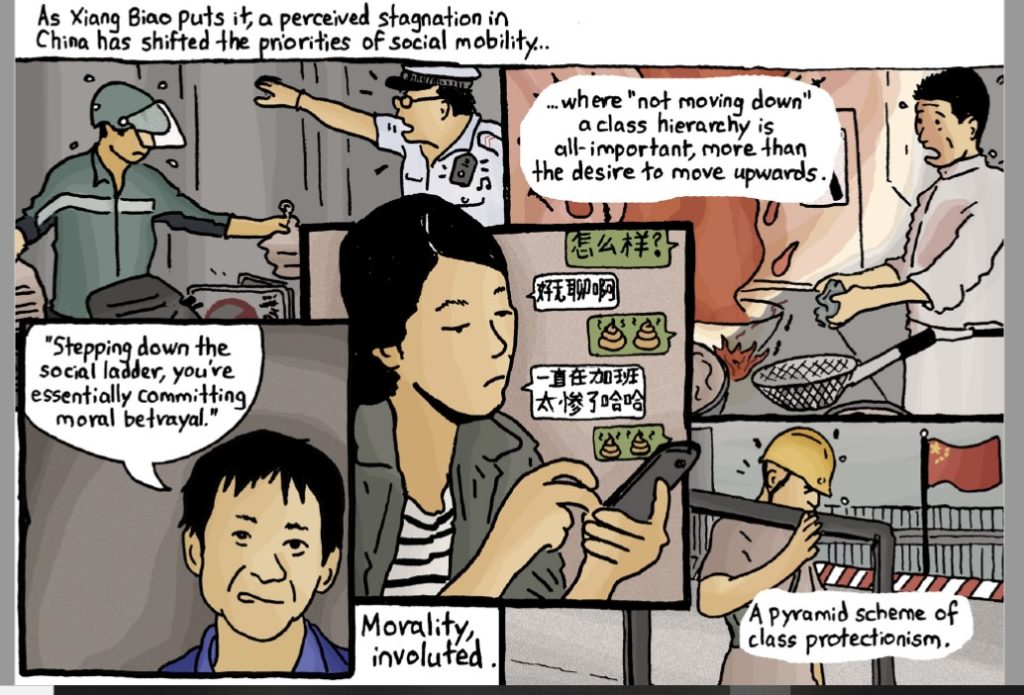
As China prospered, and wealth concentration grew, entrepreneurial Wenzhou turned strongly to religion, especially Christianity[3], with its emphasis on public morality. Eventually, in the new era that began 2012, Wenzhou Christians were punished, their churches closed or demolished, for threatening the party-state’s monopoly of loyalty.
So Xiang Biao was an early witness to all of this, and an early adopter of the need for morality in public life, to balance the rush to get rich, heedless of consequences. As a Beida student he inherited the agenda of China’s precommunist youthful revolutionaries of May Fourth, 1919, who demanded a China governed by Mr Science and Mr Democracy. To that he added a Mr New Morality. This is part of his backstory, as he says in Self as Method: “Everyone had always said that the May 4th spirit at Beida was basically about “Mr. Science” and “Mr. Democracy,” but I said that there was a third figure, called “Mr. Morality,” or “Mr. New Morality.” I thought the moral question was very important, and should not be forgotten. At the same time, I also wanted to stress that morality should not be like a hat that we put on our head, a mere protective cover over our lives. For today’s morality we need to hold the hat in our hands and take a good look at it. We can’t see the hat on our head, even if we can feel its existence, but we don’t know its shape or its colour, and in the same way, if we don’t know where our morality comes from, and simply follow it unthinkingly, then we are just following along blindly. I truly felt that morality should be the result of empirical observation and analysis, and not just sloppy dogmatism.”
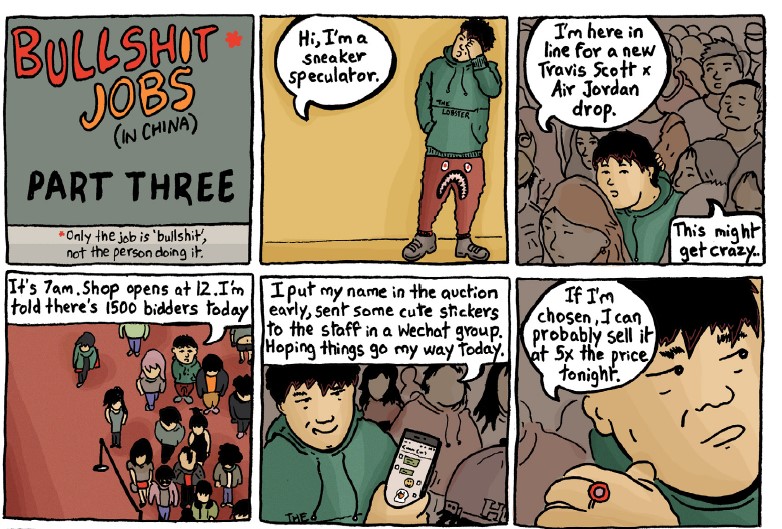
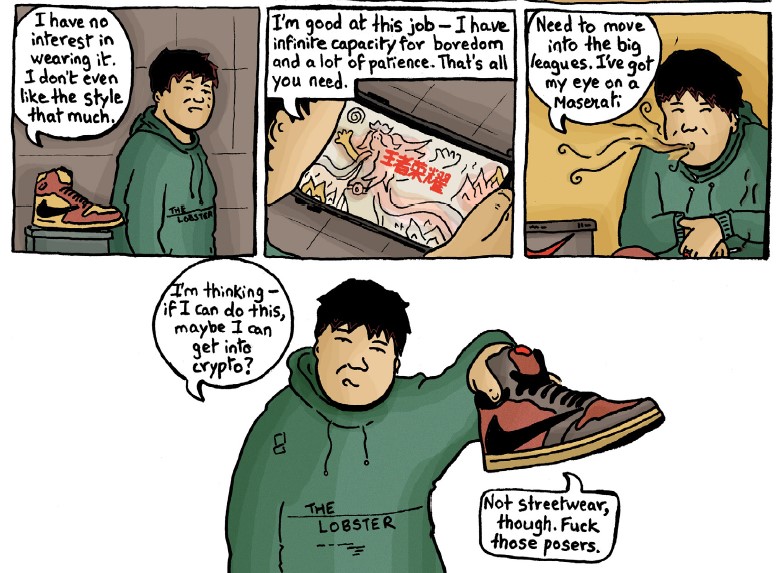
Migration remained the focus of his academic work, both migrants from rural China coming to city factories for work; and Chinese emigrating abroad in search of opportunities, as so many from Wenzhou have done. In a world of nation-states, internal and international migrants are quite different categories, but Xiang Biao reminds us they are much the same, driven by the same hopes and fears, experiencing the same discriminations, exclusions and disappointments. Little wonder he was alert to the ruthless ways the dominant big corporations generated all those bullshit jobs that in turn led to the lying flat counterculture of refusal.
Xi Jinping Thought is full of moral prescriptions and injunctions, but Xiang Biao says: “Morality where you have no choice is immoral, as is morality that is forced on you, because when I force my morality on you, it means that I am thoroughly denying your humanity at an implicit level, and that if you don’t accept my morality, then in my eyes you are not a person.”
Xiang Biao’s reflections, in this Self as Method bildungsroman, attune him to what is to be gained by not sticking to the script of your tiger parents or wolf warrior party-state: “Things that have truly changed history, whether we are talking about history writ large or your own personal history, are often the result of following your impulses. Plans based on historical calculations often wind up not having much of an impact. This is sort of a miraculous thing about life. It surprises you, it makes you feel like life and history have come alive, it gives opportunities for young people.”
Xiang Biao not only validates those who drop out and lie flat after discovering that no matter how hard they work, precarity is the only outcome, he makes them the wave of the future. He turns their flattened acceptance of the loser label into a positive, a turn towards the authentic life. He nudges his audience towards a positive evaluation of their refusal to endlessly compete, into a self-actualisation, a personal liberation, becoming fully human, no longer just a consumer. So this gawky academic, who turns 50 in 2022, has become a hero to the young who are gradually making a counterculture.
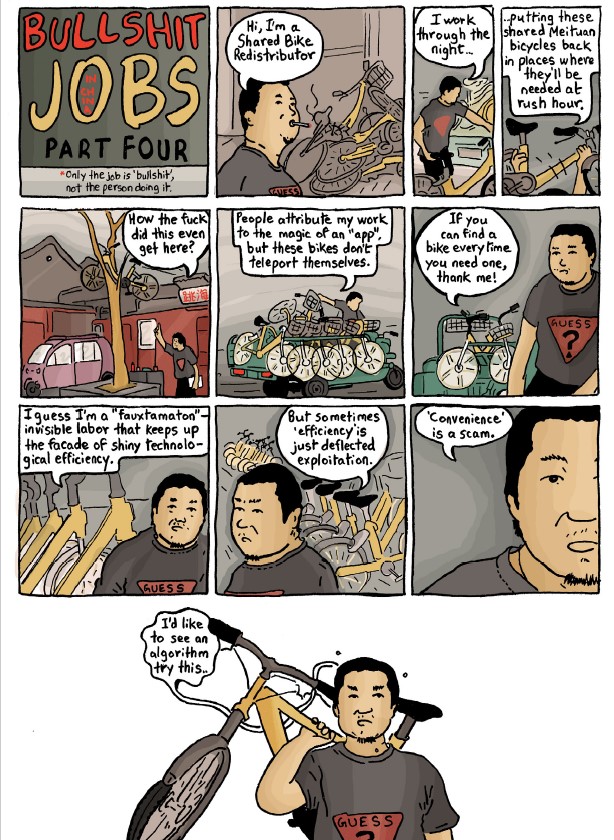
[1] Guiheux, Gilles. 2012. “Chinese Socialist Heroes: from Workers to Entrepreneurs.” In Florence, Eric, and Pierre Defraigne, Towards a New Development Paradigm in Twenty-First Century China. Economy, Society and Politics, Abingdon: Routledge, 131-142.
[2] 项飙, 吴琦, 把自己作为方法–与项飙谈话, Dandu/Shanghai, Wenyi chubanshe, 2020.
[3] Nanlai Cao, Constructing China’s Jerusalem: Christians, Power, and Place in Contemporary Wenzhou, Stanford, 2010



